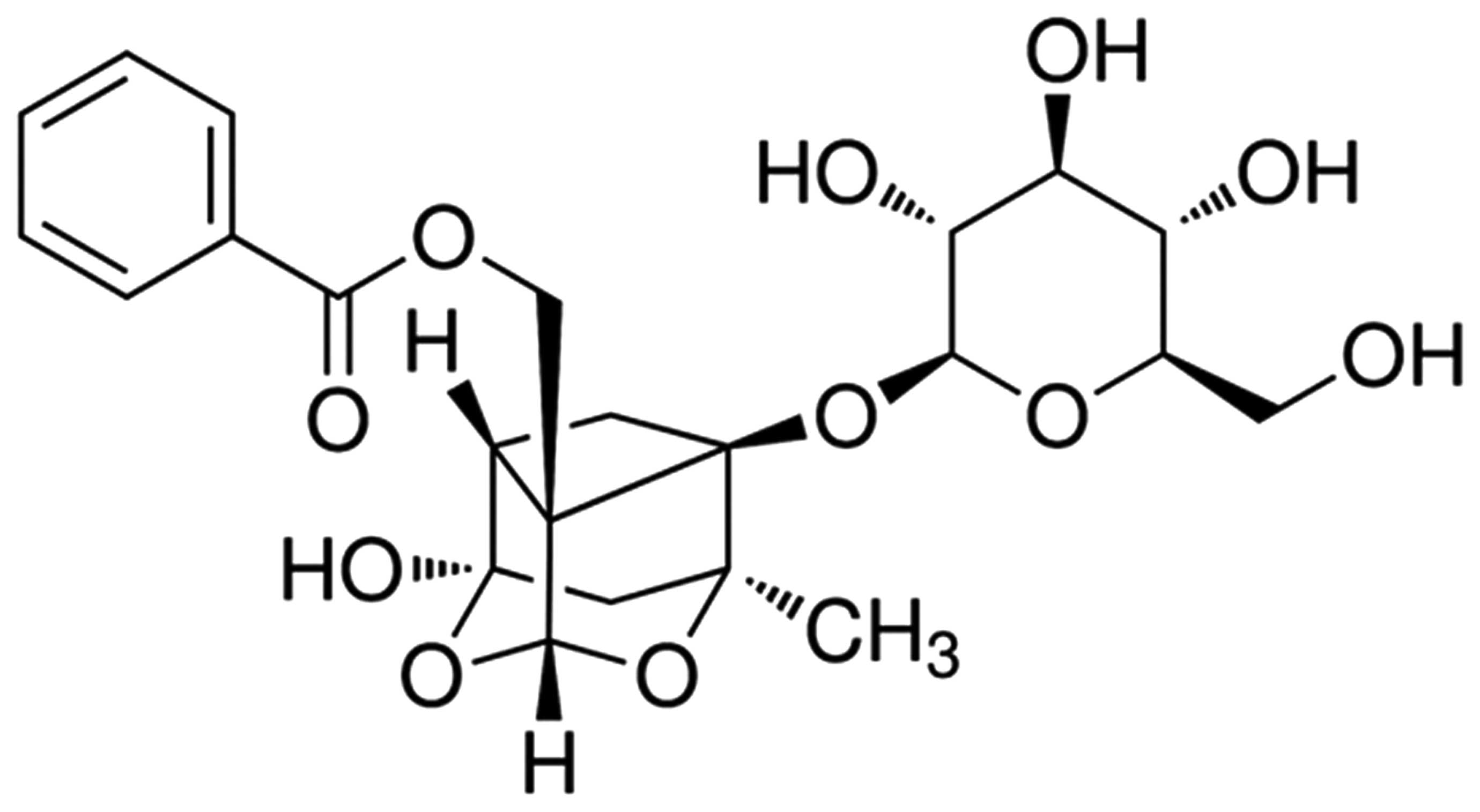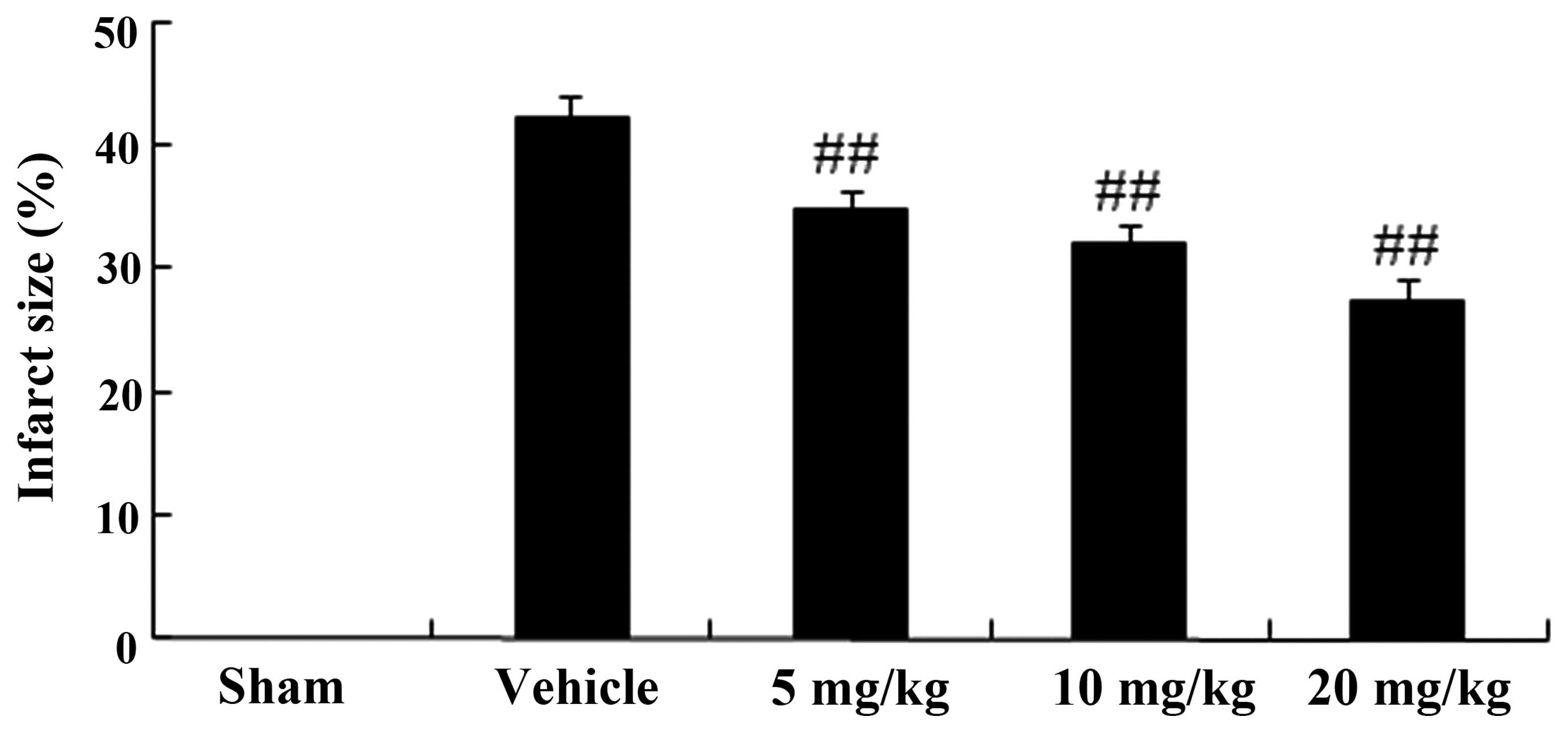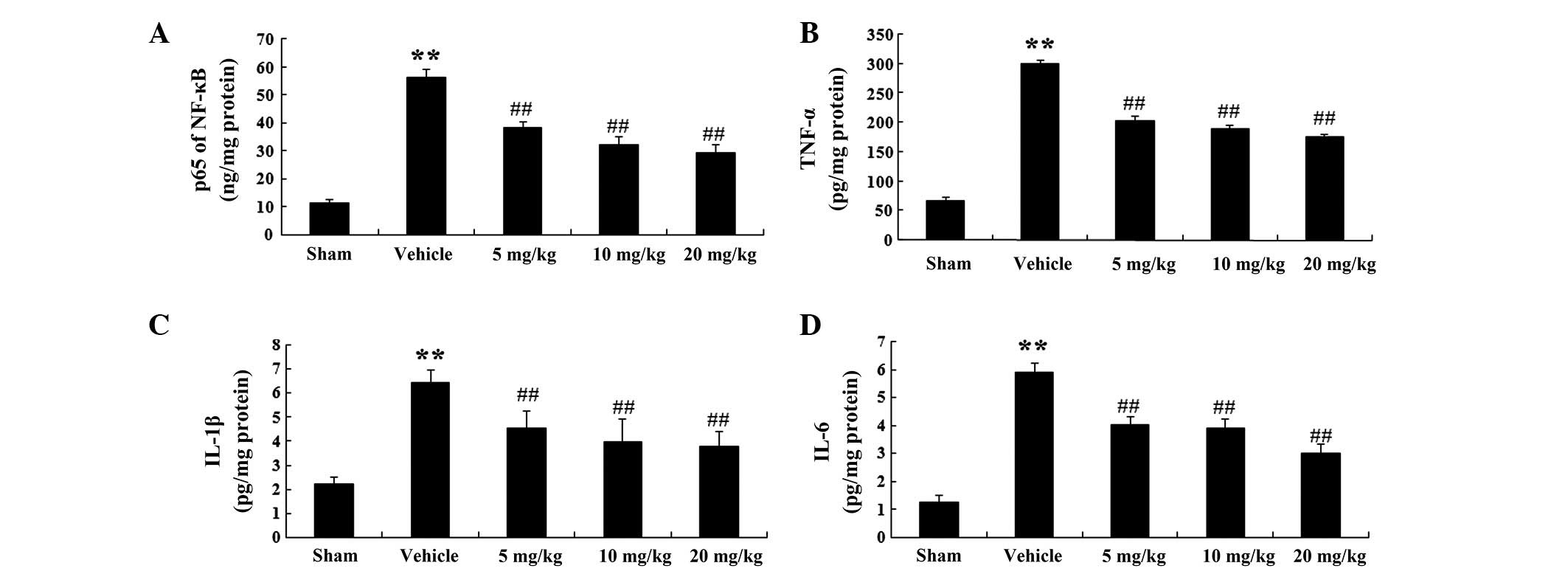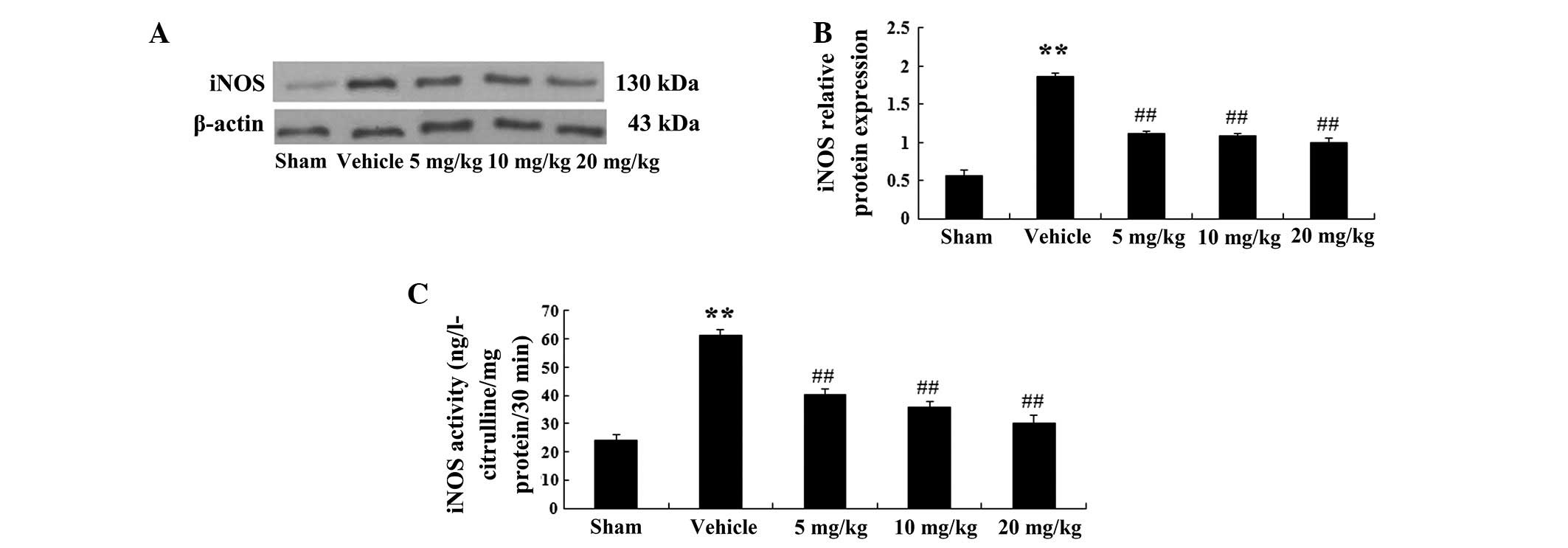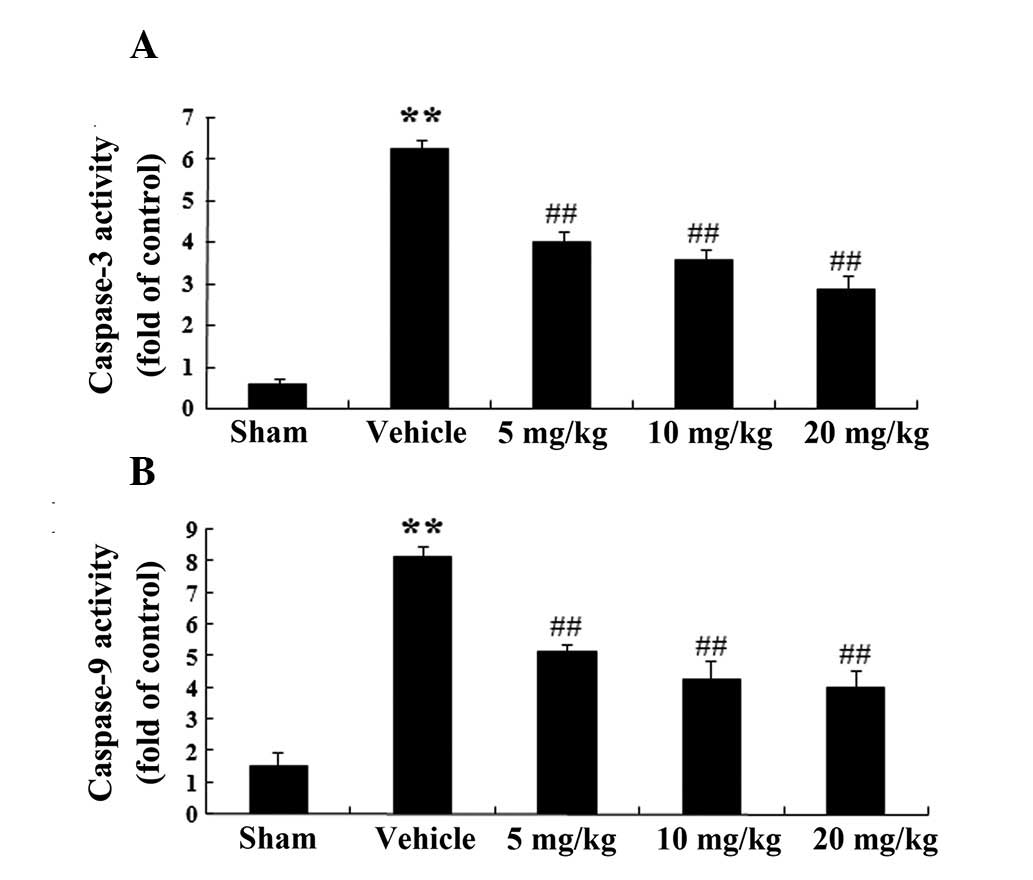|
1
|
Ouyang J, Guzman M, Desoto-Lapaix F,
Pincus MR and Wieczorek R: Utility of desmin and a Masson's
trichrome method to detect early acute myocardial infarction in
autopsy tissues. Int J Clin Exp Pathol. 3:98–105. 2009.PubMed/NCBI
|
|
2
|
Zhang S, Liu X, Goldstein S, et al: Role
of the JAK/STAT signaling pathway in the pathogenesis of acute
myocardial infarction in rats and its effect on NF-κB expression.
Mol Med Rep. 7:93–98. 2013.
|
|
3
|
Smith RS Jr, Agata J, Xia CF, et al: Human
endothelial nitric oxide synthase gene delivery protects against
cardiac remodeling and reduces oxidative stress after myocardial
infarction. Life Sci. 76:2457–2471. 2005. View Article : Google Scholar : PubMed/NCBI
|
|
4
|
Yan KP, Guo Y, Xing Z, et al: Dan-Shen-Yin
protects the heart against inflammation and oxidative stress
induced by acute ischemic myocardial injury in rats. Exp Ther Med.
3:314–318. 2012.PubMed/NCBI
|
|
5
|
Kain V, Ingle KA, Colas RA, et al:
Resolvin D1 activates the inflammation resolving response at
splenic and ventricular site following myocardial infarction
leading to improved ventricular function. J Mol Cell Cardiol.
84:24–35. 2015. View Article : Google Scholar : PubMed/NCBI
|
|
6
|
Hotamisligil GS, Shargill NS and
Spiegelman BM: Adipose expression of tumor necrosis factor-alpha:
Direct role in obesity-linked insulin resistance. Science.
259:87–91. 1993. View Article : Google Scholar : PubMed/NCBI
|
|
7
|
Hotamisligil GS, Arner P, Caro JF, et al:
Increased adipose tissue expression of tumor necrosis factor-alpha
in human obesity and insulin resistance. J Clin Invest.
95:2409–2415. 1995. View Article : Google Scholar : PubMed/NCBI
|
|
8
|
Cheng P, Wang F, Chen K, et al: Hydrogen
sulfide ameliorates ischemia/reperfusion-induced hepatitis by
inhibiting apoptosis and autophagy pathways. Mediators Inflamm.
2014:9352512014. View Article : Google Scholar : PubMed/NCBI
|
|
9
|
Ramachandran S, Liaw JM, Jia J, et al:
Ischemia-reperfusion injury in rat steatotic liver is dependent on
NFκB P65 activation. Transpl Immunol. 26:201–206. 2012. View Article : Google Scholar : PubMed/NCBI
|
|
10
|
Furchgott RF and Zawadzki JV: The
obligatory role of endothelial cells in the relaxation of arterial
smooth muscle by acetylcholine. Nature. 288:373–376. 1980.
View Article : Google Scholar : PubMed/NCBI
|
|
11
|
Palmer RM, Ferrige AG and Moncada S:
Nitric oxide release accounts for the biological activity of
endothelium-derived relaxing factor. Nature. 327:524–526. 1987.
View Article : Google Scholar : PubMed/NCBI
|
|
12
|
Jugdutt BI: Nitric oxide and
cardioprotection during ischemia-reper-fusion. Heart Fail Rev.
7:391–405. 2002. View Article : Google Scholar : PubMed/NCBI
|
|
13
|
Crowell JA, Steele VE, Sigman CC and Fay
JR: Is inducible nitric oxide synthase a target for
chemoprevention? Mol Cancer Ther. 2:815–823. 2003.PubMed/NCBI
|
|
14
|
Chen C, Zhang F, Xia ZY, et al: Protective
effects of pretreatment with Radix Paeoniae Rubra on acute lung
injury induced by intestinal ischemia/reperfusion in rats. Chin J
Traumatol. 11:37–41. 2008. View Article : Google Scholar : PubMed/NCBI
|
|
15
|
Khan M, Mohan IK, Kutala VK, et al:
Sulfaphenazole protects heart against ischemia-reperfusion injury
and cardiac dysfunction by overexpression of iNOS, leading to
enhancement of nitric oxide bioavailability and tissue oxygenation.
Antioxid Redox Signal. 11:725–738. 2009. View Article : Google Scholar
|
|
16
|
Sun R, Yi YP, Lv LL, Zhang ZP, Sun H and
Liu GQ: Effects of paeoniflorin on pathological changes in global
brain ischemia model rats. Zhongguo Zhong Yao Za Zhi. 32:2518–2522.
2007.In Chinese.
|
|
17
|
Ding MP, Feng F and Hu HT: Effects of
puerarin on expression of nuclear factor kappaB after cerebral
ischemia/reperfusion in rats. Zhongguo Zhong Yao Za Zhi.
32:2515–2518. 2007.In Chinese.
|
|
18
|
Hu W, Zhang Q, Yang X, et al: Puerarin
inhibits adhesion molecule expression in tnf-alpha-stimulated human
endothelial cells via modulation of the nuclear factor kappaB
pathway. Pharmacology. 85:27–35. 2010. View Article : Google Scholar
|
|
19
|
Hino H, Takahashi H, Suzuki Y, et al:
Anticonvulsive effect of paeoniflorin on experimental febrile
seizures in immature rats: Possible application for febrile
seizures in children. PLoS One. 7:e429202012. View Article : Google Scholar : PubMed/NCBI
|
|
20
|
Li S, Korkmaz S, Loganathan S, et al:
Acute ethanol exposure increases the susceptibility of the donor
hearts to ischemia/reper-fusion injury after transplantation in
rats. PLoS One. 7:e492372012. View Article : Google Scholar
|
|
21
|
Uchida Y, Freitas MC, Zhao D, et al: The
protective function of neutrophil elastase inhibitor in liver
ischemia/reperfusion injury. Transplantation. 89:1050–1056. 2010.
View Article : Google Scholar : PubMed/NCBI
|
|
22
|
Camilleri JP, Joseph D, Fabiani JN, et al:
Microcirculatory changes following early reperfusion in
experimental myocardial infarction. Virchows Arch A Pathol Anat
Histol. 369:315–333. 1976. View Article : Google Scholar : PubMed/NCBI
|
|
23
|
Hoda MN, Li W, Ahmad A, et al:
Sex-independent neuroprotection with minocycline after experimental
thromboembolic stroke. Exp Transl Stroke Med. 3:162011. View Article : Google Scholar : PubMed/NCBI
|
|
24
|
Hoda MN, Siddiqui S, Herberg S, et al:
Remote ischemic perconditioning is effective alone and in
combination with intravenous tissue-type plasminogen activator in
murine model of embolic stroke. Stroke. 43:2794–2799. 2012.
View Article : Google Scholar : PubMed/NCBI
|
|
25
|
Ikeda U, Ikeda M, Minota S and Shimada K:
Homocysteine increases nitric oxide synthesis in
cytokine-stimulated vascular smooth muscle cells. Circulation.
99:1230–1235. 1999. View Article : Google Scholar : PubMed/NCBI
|
|
26
|
Ashokkumar P and Sudhandiran G: Luteolin
inhibits cell proliferation during Azoxymethane-induced
experimental colon carcinogenesis via Wnt/β-catenin pathway. Invest
New Drugs. 29:273–284. 2011. View Article : Google Scholar
|
|
27
|
Guo RB, Wang GF, Zhao AP, et al:
Paeoniflorin protects against ischemia-induced brain damages in
rats via inhibiting MAPKs/NF-κB-mediated inflammatory responses.
PLoS One. 7:e497012012. View Article : Google Scholar
|
|
28
|
Guo J, Li HZ, Wang LC, et al: Increased
expression of calcium-sensing receptors in atherosclerosis confers
hypersensitivity to acute myocardial infarction in rats. Mol Cell
Biochem. 366:345–354. 2012. View Article : Google Scholar : PubMed/NCBI
|
|
29
|
Ming X, Tongshen W, Delin W and Ronghua Z:
Cardioprotective effect of the compound yangshen granule in rat
models with acute myocardial infarction. Evid Based Complement
Alternat Med. 2012:7171232012. View Article : Google Scholar : PubMed/NCBI
|
|
30
|
Priscilla DH and Prince PS:
Cardioprotective effect of gallic acid on cardiac troponin-T,
cardiac marker enzymes, lipid peroxidation products and
antioxidants in experimentally induced myocardial infarction in
Wistar rats. Chem Biol Interact. 179:118–124. 2009. View Article : Google Scholar : PubMed/NCBI
|
|
31
|
Shah H and Haridas N: Evaluation of
clinical utility of serum enzymes and troponin-T in the early
stages of acute myocardial infarction. Indian J Clin Biochem.
18:93–101. 2003. View Article : Google Scholar : PubMed/NCBI
|
|
32
|
Sheu JJ, Sung PH, Leu S, et al: Innate
immune response after acute myocardial infarction and
pharmacomodulatory action of tacrolimus in reducing infarct size
and preserving myocardial integrity. J Biomed Sci. 20:822013.
View Article : Google Scholar : PubMed/NCBI
|
|
33
|
Dong D, Xu L, Han X, et al: Effects of the
total saponins from Rosa laevigata Michx fruit against
acetaminophen-induced liver damage in mice via induction of
autophagy and suppression of inflammation and apoptosis. Molecules.
19:7189–7206. 2014. View Article : Google Scholar : PubMed/NCBI
|
|
34
|
Talasaz AH, Khalili H, Jenab Y, et al:
N-Acetylcysteine effects on transforming growth factor-β and tumor
necrosis factor-α serum levels as pro-fibrotic and inflammatory
biomarkers in patients following ST-segment elevation myocardial
infarction. Drugs R D. 13:199–205. 2013. View Article : Google Scholar : PubMed/NCBI
|
|
35
|
Liu YF, Tu SH, Chen Z, et al: Effects of
modified simiao decoction on IL-1 β and TNF α secretion in
monocytic THP-1 cells with monosodium urate crystals-induced
inflammation. Evid Based Complement Alternat Med. 2014:4068162014.
View Article : Google Scholar
|
|
36
|
Liu Y, He P, Zhang M and Wu D: Lentiviral
vector-mediated RNA interference targeted against prohibitin
inhibits apoptosis of the retinoic acid-resistant acute
promyelocytic leukemia cell line NB4-R1. Mol Med Rep. 6:1288–1292.
2012.PubMed/NCBI
|
|
37
|
Jiang P, Li C, Xiang Z and Jiao B:
Tanshinone IIA reduces the risk of Alzheimer's disease by
inhibiting iNOS, MMP-2 and NF-κBp65 transcription and translation
in the temporal lobes of rat models of Alzheimer's disease. Mol Med
Rep. 10:689–694. 2014.PubMed/NCBI
|
|
38
|
Feng J, Tao T, Yan W, et al: Curcumin
inhibits mitochondrial injury and apoptosis from the early stage in
EAE mice. Oxid Med Cell Longev. 2014:7287512014. View Article : Google Scholar : PubMed/NCBI
|
|
39
|
Wang K, Zhu L, Zhu X, et al: Protective
effect of paeoniflorin on Aβ25–35-induced SH-SY5Y cell injury by
preventing mitochondrial dysfunction. Cell Mol Neurobiol.
34:227–234. 2014. View Article : Google Scholar
|















